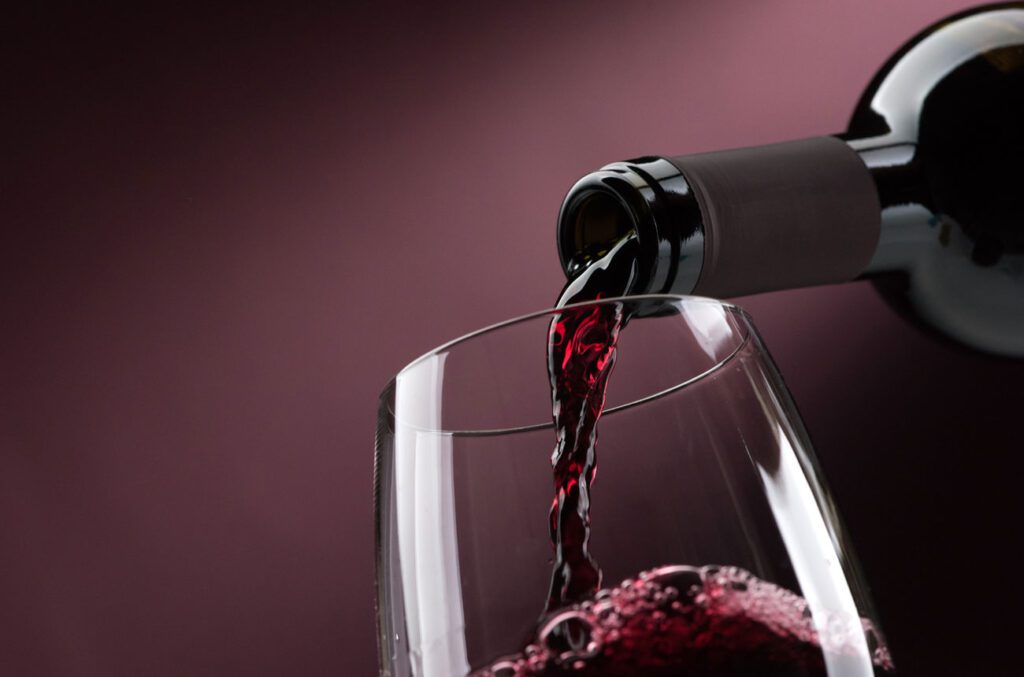Retailers sold 10 million fewer bottles of wine during the festive trading period than they did the previous year.
Spirits sales also fell by 7.1% in the 12 weeks leading up to Christmas, according to new figures from the Wine and Spirits Trade Association (WSTA).
This equates to a 7.7 million fewer bottles of spirits sold, while beer and cider sales also fell.
Industry leaders blamed the situation on the government's decision to increase taxes last August.
Cash-strapped shoppers will now have to pay an additional 20% tax on most bottles of wine and more than 10% on whole spirits.
They are already struggling to make ends meet amid the cost of living crisis, and have responded by cutting back on their wine purchases.
The decision to raise taxes ultimately backfired. Tax revenue from wine and spirits sales fell by £436 million year-on-year between September 2023 and January 2024, the latest government figures show.
When we add in the losses from tax revenues on beer and cider, we find that the Treasury's coffers have fallen by about £600 million.
The WSTA has urged Chancellor Jeremy Hunt to rectify the situation by cutting alcohol duties and simplifying the tax system when he announces the budget on Wednesday.
Chief executive Miles Bell said: “Wine and spirits businesses across the country are urging the government to do the right thing in this week’s Budget: support British businesses and boost the coffers by cutting alcohol duty.”
“It has now been shown that the record tariff increases last August did just the opposite – instead driving up inflation and significantly reducing indirect duty revenues to the Treasury.”
UK wine drinkers currently pay £2.67 in tax on a bottle of 12.5% wine, while the French pay just £0.03 per bottle.
The double-digit increase in August was the highest in nearly 50 years. If the government announces a further increase in inflation-linked tariffs on Wednesday, the tax will increase to £2.80 on a bottle of wine and £8.71 on a bottle of spirits.
Retailers are also hoping the Chancellor will scrap plans to introduce 30 different tax bands based on the strength of each bottle of wine.
“The proposed change from one business range to 30 different ranges based on abv would be bad for retailers, hospitality businesses, consumers and the wine industry,” said John Colley, chief executive of Majestic Wine. Common sense must prevail and this must stop.
Colley warned that the proposed changes would result in international wine producers avoiding visiting the UK due to more red tape, which would reduce options for British wine drinkers.
“It's anti-business, anti-growth, anti-jobs,” he said. “As the UK’s largest wine retailer, we have serious doubts that the systems required to administer the new taxes can be properly implemented.
“There will be significant costs and no value to consumers, businesses or exchequers. The government’s lack of understanding of how wine is made and distributed is worrying.
'This isn't just about Majestic. The proposed policy will disproportionately affect small businesses, including the 900 independent wine merchants operating across the UK and many importers who deal with international wine trade. It will hit high street retailers and hospitality venues, threatening growth and, ultimately, people's jobs and livelihoods.
“Reducing alcohol duty will boost Treasury revenues, help support British businesses like ours and prevent further unnecessary price increases for consumers.”


